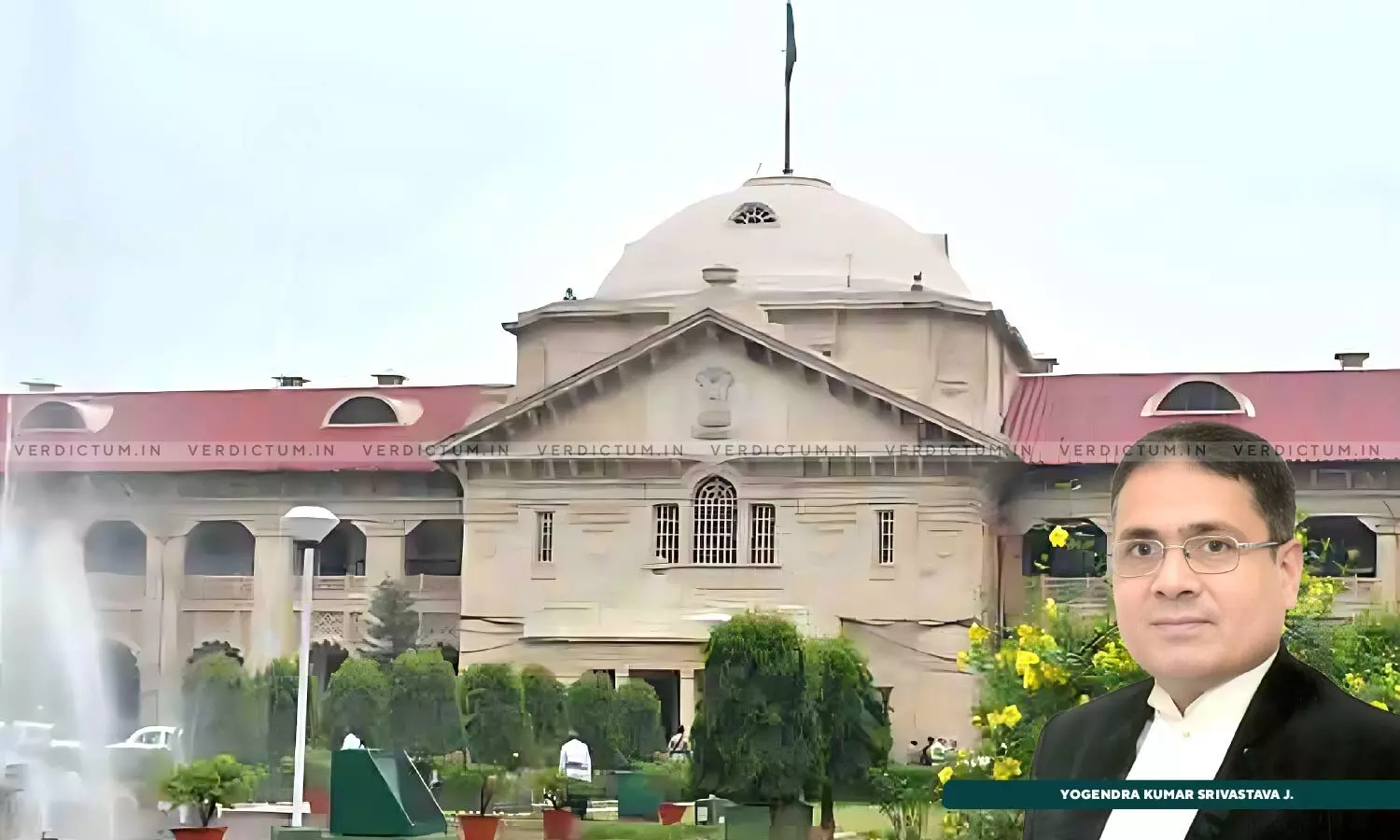
Courts Can Allow Amendment Of Complaint Under Domestic Violence Act In Appropriate Cases: Allahabad HC
 |
|The Allahabad High Court observed that courts can allow amendment of complaints under Protection of Women from Domestic Violence Act, 2005 (DV Act) in appropriate cases.
The Court observed thus in a petition filed against the order of the Judicial Magistrate under Section 12 of DV Act and the subsequent order of the Additional Sessions Judge by which the earlier order was affirmed.
A Single Bench of Justice Yogendra Kumar Srivastava held, “Having regard to the aforesaid, the contention sought to be raised on behalf of the petitioner that the Magistrate before whom the application under Section 12 of the D.V. Act, was pending, did not have the jurisdiction or the power to allow the application seeking amendment in the relief clause of the original application, cannot be legally sustained.”
Advocate Sanjay Kumar Verma appeared for the petitioner while AGA-I Pankaj Saxena appeared for the respondents.
In this case, an application was moved by a woman (applicant) seeking an amendment in the relief clause of an earlier application which was filed under Section 12 of DV Act. The application seeking amendment sought deletion of a part of the relief clause, stating that due to an inadvertent typographical error, maintenance was sought for ‘the minor son’, whereas the applicant did not have any minor son. The petitioner, i.e., the father of the husband of the applicant raised objections to the amendment application by contending that no such amendment was permissible in a criminal proceeding.
The Magistrate passed an order allowing the application seeking amendment and observed that the said application be read along with the main application, fixing a date for passing further order. Being aggrieved by such order, the petitioner preferred a revision which was rejected by an order wherein the revisional court held that the proceedings under DV Act were quasi civil in nature and accordingly, amendments to pleadings were permissible. Hence, the order of the Magistrate on the amendment application and the subsequent revisional order were assailed via petition before the High Court.
The High Court in the above regard noted, “… even in criminal cases governed by the Cr.P.C., the court is not powerless and may allow amendment in appropriate cases, which may be in situations where an amendment seeks to introduce facts based on subsequent events, or to avoid multiplicity of the proceedings.”
The Court added that an amendment may also be permissible if it relates to a simple infirmity which is curable by means of a formal amendment and in allowing such amendment, no prejudice is likely to be caused to the other side.
“The question as to whether a court dealing with an application filed under the D.V. Act has the power to allow amendments to the application originally filed, was also examined in the Kunapareddy (supra) case and after considering the provision contained under sub-section (2) of Section 28, which empowers the court to lay down its procedure for disposal of an application filed under Section 12 or under Section 23, it was held that the court is not powerless in this regard and may allow amendments in appropriate cases. This would be in situations where the amendment becomes necessary, in view of the subsequent events or to avoid multiplicity of litigation”, it said.
Furthermore, the Court observed that the proceedings before the Magistrate relating to reliefs claimed under Chapter IV of the D.V. Act, having been held essentially to be of a civil nature, the power to amend the complaint/application would have to be read in relevant statutory provisions, as a necessary concomitant.
“There would, thus, be no complete or absolute bar in seeking amendment even in complaints before criminal courts which are governed by Cr.P.C., although the power to allow such amendment would have to be exercised with due caution and sparingly, in appropriate circumstances.”, it also remarked.
The Court concluded that the order of the Magistrate allowing the amendment application and the subsequent order of affirmation by the revisional court cannot be said to suffer from any illegality, which may warrant interference by the court under Article 227 of the Constitution.
Accordingly, the High Court dismissed the petition.
Cause Title- Saleem Ahmad v. State of UP and 2 Others (Neutral Citation: 2024:AHC:89128)
Appearance:
Petitioner: Advocate Sanjay Kumar Verma
Respondents: AGA-I Pankaj Saxena and Advocate Kuldeep Singh Parmar.